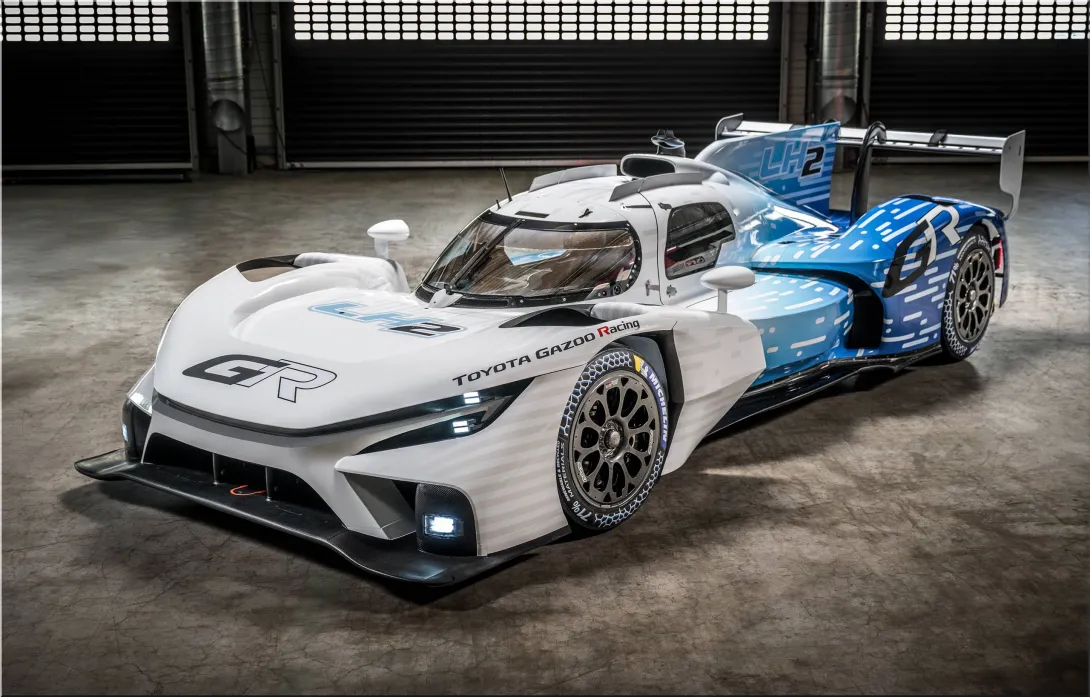In the ever-evolving world of automotive innovation, Toyota has taken a groundbreaking step forward by unveiling its hydrogen-powered race car. This ambitious leap is not just about redefining speed, but about rewriting the future of clean mobility. As global industries lean heavily toward sustainable technologies, Toyota’s hydrogen-powered vehicle offers a compelling glimpse into an eco-friendly motorsport future.
The Toyota hydrogen race car, officially known as the Toyota GR H2 Racing Concept, was introduced at the 24 Hours of Le Mans as a futuristic prototype designed to participate in the upcoming hydrogen category of endurance racing. Toyota’s move signals a clear commitment to developing carbon-neutral technologies without sacrificing performance—a critical balance for the competitive motorsport scene.
A Shift from Electric to Hydrogen
While many automakers are focusing on electric vehicles, Toyota is diversifying its approach with hydrogen fuel cell technology. Unlike traditional electric cars that rely on batteries, Toyota’s hydrogen-powered car generates electricity by mixing hydrogen with oxygen in a fuel cell, producing only water vapor as a by-product. This allows for quick refueling and extended driving ranges, making hydrogen a highly attractive option for endurance racing.
Toyota has been a pioneer in hydrogen technology with its Mirai sedan, but the GR H2 concept takes this to the racetrack, proving that sustainability and high-speed performance can go hand-in-hand. It reflects the company’s strategy of investing in multi-pathway clean mobility solutions rather than placing all bets on battery electric vehicles.
Performance Meets Sustainability
The GR H2 hydrogen race car is not just an experimental prototype—it’s built with serious racing capabilities. Although full specs have not yet been released, Toyota promises that the car will meet the grueling demands of 24-hour racing. Engineers have focused on creating a lightweight, aerodynamic body paired with a powerful hydrogen-fueled combustion engine or fuel cell system.
By entering the hydrogen category, Toyota aims to show that hydrogen-powered vehicles can be more than just concept cars or commuter sedans. They can perform under extreme stress, manage high speeds, and last through hours of competition—all without emitting harmful greenhouse gases.
A Strategic Move Toward Future Mobility
Toyota’s commitment to hydrogen as a sustainable fuel source goes beyond motorsport. The company believes hydrogen has a pivotal role to play in the future of mobility, especially for heavy-duty trucks, public transport, and long-distance applications where electric batteries may not be practical.
By introducing the Toyota hydrogen race car to the world stage, the automaker is not only testing technology under the harshest conditions but also increasing public awareness and industry interest. Racing has always been a testing ground for innovations that eventually reach consumer vehicles, and Toyota’s investment here might just fast-track hydrogen adoption across the automotive industry.
Challenges and Opportunities
Despite the excitement, hydrogen technology still faces several hurdles. Hydrogen infrastructure is limited, especially outside of countries like Japan and parts of Europe. Additionally, producing green hydrogen (from renewable sources) remains expensive. But with global pressure to reduce emissions and with giants like Toyota pushing hydrogen development, the landscape may change rapidly.
Toyota’s hydrogen-powered race car offers a tangible solution that combines environmental responsibility with thrilling performance. It’s a promising vision of motorsport and personal transportation powered by clean energy.
Read More: KIA Stonic EX Relaunched at Rs. 4,767,000
Toyota’s hydrogen race car is more than just a concept—it’s a symbol of what the future of motorsport and sustainable transportation could look like. By focusing on zero-emission alternatives that don’t compromise on performance, Toyota continues to lead the automotive world toward a cleaner, more innovative future.
Read More: New Prices of Honda Cars After Taxes in Budget 2025









